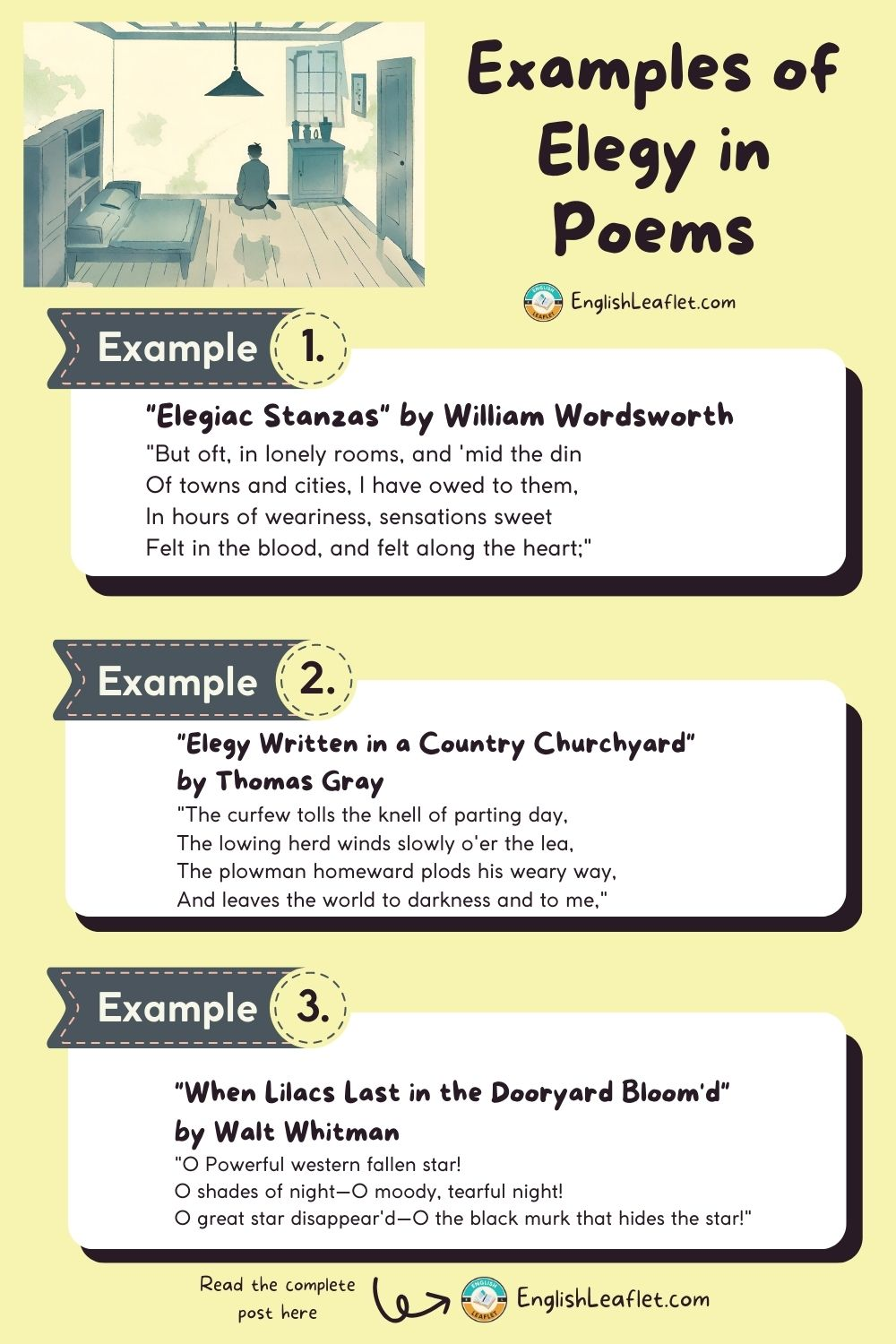The elegy poetry workshop held recently at Harvard’s Woodberry Poetry Room invites participants to explore the profound nature of grief through creative expression. As a part of a unique community poetry initiative, this workshop engages individuals in writing and reflecting on their losses, making it a therapeutic space for those looking to process their emotions during challenging times. With roots in the intense personal experiences of loneliness felt during the pandemic, the elegy serves not only as a form of mourning but also as a celebration of life and memory. Led by talented facilitators, this event contributes to a wider array of Harvard poetry events designed to foster connection and resilience through artistic expression. Join us to discover how writing workshops can empower individuals to articulate their sorrow and transform it into something beautiful.
Gathering under the theme of loss and remembrance, this poetry workshop opens up paths for participants to articulate their emotions surrounding absence and longing. Elegiac poetry, often seen as a channel for expressing grief, takes center stage in this collaborative environment, encouraging both seasoned poets and newcomers alike to delve into their personal narratives. Drawing on the tradition of mourning literature, this initiative helps individuals navigate the solitude of their experiences while fostering community bonds through shared creativity. The transformative power of poetry allows attendees to engage with their feelings in a supportive setting, making it an essential element of the collective healing process. The workshop aims to inspire a deeper connection with the written word as a means of coping and reflecting on life’s deeper truths.
The Healing Power of Elegy Poetry Workshops
Elegy poetry workshops serve as a vital space for individuals to process their grief and explore the complexities of loss. By participating in these gatherings, poets and non-poets alike can come together to commemorate lives lost, capturing the essence of their feelings in words. Such workshops, like the Elegy Project conducted at Harvard’s Woodberry Poetry Room, are designed not just for poetic expression but also for healing. Anchored in community, they encourage collaboration and reflection among participants, fostering connections through shared experiences of sorrow and reminiscence.
In a world that often feels isolating, elegy workshops provide a supportive setting where individuals can articulate their grief, thereby reducing its burden. This collective experience not only honors the memories of those who have passed but also promotes emotional well-being among the living. As participants engage with one another, they find solace in the universality of grief, realizing that their heartaches are not suffered in solitude but understood by others walking similar paths. The process of creating elegy poetry combines the therapeutic power of writing with the cathartic joy of community, making it an invaluable resource for anyone grappling with loss.
Exploring Grief and Poetry in Solitude
While elegy poetry can be deeply personal and often written in isolation, the act of sharing and discussing these poems amplifies their impact. In the solitude of writing, individuals may find clarity and peace, but bringing those reflections into a communal setting offers new perspectives and insights. Workshops that focus on grief and poetry enable participants to delve into their emotions, articulate their experiences, and confront their vulnerabilities. This dual approach of solitary writing followed by communal sharing creates a rich tapestry of emotional exploration that echoes the sentiments of many, transforming personal grief into universal narratives.
The intersection of grief and poetry addresses not only the pain of loss but also the profound connections that arise from shared human experiences. Through writing workshops that emphasize poetry in solitude, individuals can first navigate their inner worlds, and then through collective engagement, amplify their expressions of sorrow. This method fosters a deeper understanding of the healing process, as participants engage in dialogues around their poems, encouraging each other to embrace the beauty amid heartbreak. Such experiences in the realm of poetry highlight how solitude does not have to equate to loneliness, and how communal spaces can rejuvenate individual voices.
Community Poetry Events: A Shared Journey
Community poetry events provide an essential platform for individuals to come together to share their unique stories and experiences through the timeless art of poetry. These gatherings reflect the collective voices within a community, where each poem becomes a thread in the larger narrative of shared humanity. Events like the Elegy Project not only celebrate the craft of writing but also emphasize the importance of connections forged through shared experiences of loss and resilience. By attending such workshops, participants find a sense of belonging, discovering that their individual stories resonate with others in the room, fostering a culture of empathy and understanding.
The importance of community poetry events extends beyond the mere act of writing; they nurture a supportive environment that encourages individuals to express their innermost feelings. By weaving personal experiences with the communal aspect of poetry, participants can explore themes of grief, memory, and healing together. This creates an empowering space where voices that are often silenced by societal norms emerge to be celebrated. As poets share their work in front of others, they not only honor their own narratives but also give voice to the unspoken sorrows of their communities, reinforcing the idea that poetry can be a catalyst for dialogue and healing.
Grief and Poetry: Finding Connection in Loss
The interplay between grief and poetry allows individuals to navigate their loss creatively while also finding connections with others. Poetry not only serves as a means of personal expression but also acts as a bridge that connects shared experiences across different walks of life. Workshops like the one organized by Harvard’s Woodberry Poetry Room show that creativity can emerge from shared feelings of mourning. By encouraging attendees to explore their grief through writing, these workshops highlight the ability of poetry to articulate profound emotions in a way that transcends individual experiences.
In moments of sorrow, poetry becomes a voice for the voiceless, articulating the emotions that often remain unspoken. Through collaborative explorations of elegy poetry, participants learn to articulate their grief authentically, enhancing their sense of connection not just with their own experiences but with the broader community. Each elegy crafted becomes a testament to the enduring nature of love and memory, hinting at the beauty that can emerge even in the depths of sadness. Thus, poetry offers both an individual catharsis and a communal celebration of life, making it a powerful tool for navigating the complexities of loss.
The Role of Writing Workshops in Emotional Well-being
Writing workshops dedicated to poetry play a significant role in enhancing emotional well-being by providing participants with an outlet to express their thoughts and feelings. By engaging in structured sessions led by experienced poets and educators, individuals discover techniques that help them to articulate their emotions through verse. This creative process allows for an exploration of personal grief, loneliness, and ultimately, healing. The workshop environment encourages participants to not only write for themselves but also engage in discussions that enrich their understanding of poetry and its therapeutic benefits.
As people gather to share their written works, the collaborative nature of these workshops enhances the communal experience of grief and supports individual healing journeys. Participants learn from each other’s perspectives, often finding that others’ writings mirror their own feelings and thoughts. This dynamic fosters a sense of togetherness, allowing participants to feel less isolated in their experiences. Writing workshops can become sanctuaries of solace, where poetry serves as both a vehicle for personal reflection and a means to connect with and support others, reinforcing the notion that healing is best pursued in shared humanity.
Elegy Poetry: A Collective Response to Loneliness
Elegy poetry often captures the essence of personal and collective mourning, responding to the profound loneliness that many individuals experience during times of loss. A workshop focused on this style of poetry not only cultivates individual creativity but also nurtures a communal response to shared heartaches. For many participants, writing elegies becomes a way to process their feelings in tandem with others who may have faced similar losses, thereby transforming loneliness into a collective understanding of grief. This shared exploration is crucial, particularly in our increasingly isolated society, where such connections can feel scarce.
Through the Elegy Project at Harvard, participants are not only encouraged to compose elegies as a form of individual expression but also to see those stiff emotions transformed into verses that resonate with the communal experience. As they share their elegies within a supportive environment, they learn to articulate their grief while simultaneously discovering that their narratives intersect with those of others. This process underscores poetry’s unique capacity to foster understanding and connection, reminding those in attendance that while grief can feel isolating, it is perhaps the most universal human experience to share through the lens of art.
Poetry in Solitude: Crafting Individual Narratives
Creating poetry in solitude is an intimate process that allows writers to delve deep into their thoughts and feelings, making sense of personal experiences in their own terms. This inward journey is particularly powerful when crafting elegy poems, which grapple with themes of loss and remembrance. While the solitary act of writing can be therapeutic, those creating elegies often find themselves wrestling with complex emotions that are better articulated away from external noise. Workshops may eventually provide a platform to share these private creations, bridging the gap between solitude and community.
When poets emerge from their solitary writing spaces to share their elegies with a group, the act of sharing transforms their personal narratives into communal stories of grief. Workshops encourage this delicate balance by allowing individuals to reflect, write, and then engage with one another’s words. This exchange not only validates their emotional experiences but also opens up dialogue around poetry’s role as both a personal refuge and a shared experience. The recognition that others resonate with their sentiments fosters a sense of belonging among participants, emphasizing that while each person’s journey in poetry may begin in solitude, it can blossom into a beautiful shared experience.
Engaging with Literature: The Influence of Texts
The incorporation of literature into poetry workshops serves as both inspiration and a teaching tool for participants exploring elegy and other forms. By engaging with texts that convey profound emotions related to loss and remembrance, individuals learn to articulate their feelings in ways that resonate widely. The guidance provided during workshops not only exposes participants to various poetic styles but also encourages them to reflect on how established poets have navigated similar themes in their own works. This interaction between participant and text is essential to the workshop’s mission of fostering creativity and connection.
Additionally, as participants respond to literary prompts, they engage in a dialogue that bridges their personal experiences with the broader poetic traditions. The act of exploring how others have written about grief can inspire new interpretations and reflections within participants’ own works. This shared examination of texts acts as a catalyst for creativity, leading to unexpected revelations about the participants’ emotions. Literature’s profound influence on poetry workshops enriches the writing experience, reminding attendees of the power that words have to process, heal, and connect across time and space.
Frequently Asked Questions
What is the focus of the elegy poetry workshop at Harvard?
The elegy poetry workshop at Harvard, part of the ongoing Elegy Project, focuses on the tradition of elegy, which honors the dead and addresses personal loss. It encourages participants to write elegies inspired by collective grief, such as that caused by the pandemic, and to explore the deeply personal themes of mourning and remembrance.
How does the elegy poetry workshop support community engagement?
The elegy poetry workshop supports community engagement by providing a space for individuals to come together and share their experiences of grief and loss through poetry. It aims to make the process of mourning less lonely by encouraging participants to connect with others and express their emotions, fostering a sense of community among poets and non-poets alike.
Who leads the elegy poetry workshop at Harvard?
The elegy poetry workshop at Harvard is led by Karen Elizabeth Bishop and David Sherman, both experienced poets and educators. Their leadership, along with the support from the Woodberry Poetry Room, helps create a supportive environment for participants to explore elegy and its significance in processing grief.
What types of individuals typically attend the elegy poetry workshop?
Participants in the elegy poetry workshop come from diverse backgrounds, including academics, artists, and casual poetry enthusiasts. Some may have experience with poetry, while others might be exploring it for the first time, all seeking a communal space to express their grief and creativity.
How does the elegy poetry workshop facilitate the writing process?
The elegy poetry workshop facilitates the writing process by incorporating prompts and engaging texts to inspire creativity. This approach helps participants overcome writer’s block and encourages dynamic interactions between their ideas, the literature they encounter, and the collective experience of the writing group.
In what ways does the elegy poetry workshop address grief and healing?
The elegy poetry workshop addresses grief and healing by allowing participants to articulate their feelings through poetry, creating an essential outlet for expression. This process of writing and sharing can help individuals cope with loss and find solace in the understanding that others share similar experiences of mourning.
What impact does the Harvard elegy poetry workshop have on participants?
The Harvard elegy poetry workshop impacts participants by fostering a sense of community and belonging around the shared experience of loss. It offers a platform for personal expression and reflection, helping individuals to process their grief while also celebrating the beauty and power of poetic expressions.
What are some outcomes of attending the elegy poetry workshop in terms of creative growth?
Outcomes of attending the elegy poetry workshop include enhanced poetic skills, greater confidence in personal expression, and the development of a deeper understanding of the elegy form. Participants often leave with completed poems and a renewed appreciation for poetry as a medium for processing complex emotions.
| Key Points |
|---|
| Maria and Julia Lisella, Josh Kurtz, and Kenny Likis reflect on writing during a workshop at Harvard’s Woodberry Poetry Room. |
| The Elegy Project, led by Karen Elizabeth Bishop and David Sherman, addresses loneliness and grief during the pandemic. |
| Elegies honor the dead and express sorrow; they foster human connection through shared experiences of loss. |
| Workshop participants include poets and non-poets, united in their exploration of elegiac writing. |
| Poetry cards are distributed publicly to encourage community engagement with themes of grief and remembrance. |
| Workshops provide a platform for individuals to explore poetry creatively with guided prompts and inspiration. |
| The Poetry Room seeks to make poetry accessible to everyone and nurture collective creative expression. |
Summary
The elegy poetry workshop serves as a profound exploration into the depths of grief and loss, emphasizing the importance of shared experiences in coping with these emotions. By bringing together individuals from diverse backgrounds, the workshop fosters a sense of community and connection, ultimately highlighting the therapeutic power of elegiac poetry. Through collaborative writing and the creation of poetry cards, participants not only honor their own experiences of loss but also contribute to a broader dialogue about grief in society. Thus, the elegy poetry workshop is an invaluable space for healing and introspection, reminding us that we are not alone in our sorrow.


